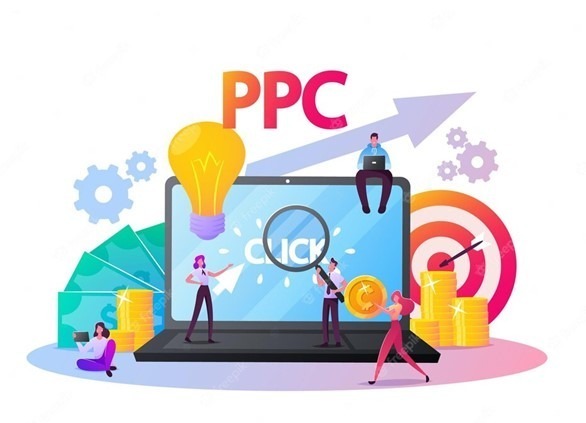To thrive amid today’s dynamic digital landscape, businesses must use Pay Per Click (PPC) advertising as part of their overall marketing strategy. But why? Well, it helps them reach a particular group of people, and they only pay when someone clicks on their ads. This is a smart way to manage their advertising budget effectively.
However, several things influence how much a campaign costs and the return on investment (ROI). This article explores the important factors that shape these results when using terms such as near me PPC advertising company. It’s a must-read for businesses that want to make the most of their PPC campaigns and get the best results.
Keywords and Competition
Keywords are important in PPC advertising. When a keyword is highly competitive, the cost per click (CPC) tends to be higher. This is because popular keywords with lots of searches are in high demand and cost more.
The industry niche you choose also affects the price of PPC advertising. Industries like insurance or legal services have a lot of competition, so their CPCs are higher than less competitive sectors.
Quality Score
Search engines like Google give each PPC ad a quality score based on factors like click-through rate (CTR), ad relevance, and landing page experience. A higher quality score can improve your ad rank and lower your CPC.
To improve your quality score and get better returns on your investment, create compelling ad copy, optimize landing pages, and make sure your ads are relevant.
Geographic Targeting
Geographic targeting lets advertisers focus their PPC campaigns on specific regions or locations. The cost of PPC advertising varies based on location.
Choosing a major city for your campaign is more expensive than targeting a rural area or small town. Businesses should consider their target audience’s location when deciding how much to budget for their PPC marketing.
Ad Scheduling and Bidding Strategy
A PPC campaign’s success depends on when ads are shown. The timing of the day and the day of the week matter. By analyzing data, trends can be identified. This helps determine when the target audience responds best to ads. Knowing this helps decide when to place ads for maximum impact. Choosing the right bidding strategy is also important. It can be automated or manual. Trying different strategies and monitoring performance helps find the best approach.
Ad Quality and Relevance
To succeed with your PPC campaigns, you need to create excellent ads that connect with your target audience. Use eye-catching images and a clear calltoaction to get people interested. Make sure your landing pages match what people are searching for, so they’ll keep coming back. This will help you make more money in the long run.
Ad Extensions and Ad Formats
Ad extensions add more info and features to your PPC ads. They include phone numbers, site links, and product images. Using them well boosts ad visibility, CTR, and user interest. Also, note that text, display, and video ads have different costs and performance levels. To get better results, learn what engages your target audience and use different ad formats accordingly.
Conclusion
PPC advertising helps businesses reach their audience and achieve marketing goals. To succeed, it’s important to know what affects the cost and ROI of PPC campaigns. Factors like keywords, competition, quality score, location targeting, ad timing, bidding, ad quality, relevance, and formats matter. By considering these factors, businesses can make smart choices to boost their PPC performance and profitability.
Read Also: H-SupertoolsH-Supertools Free Keyword Research Tool

